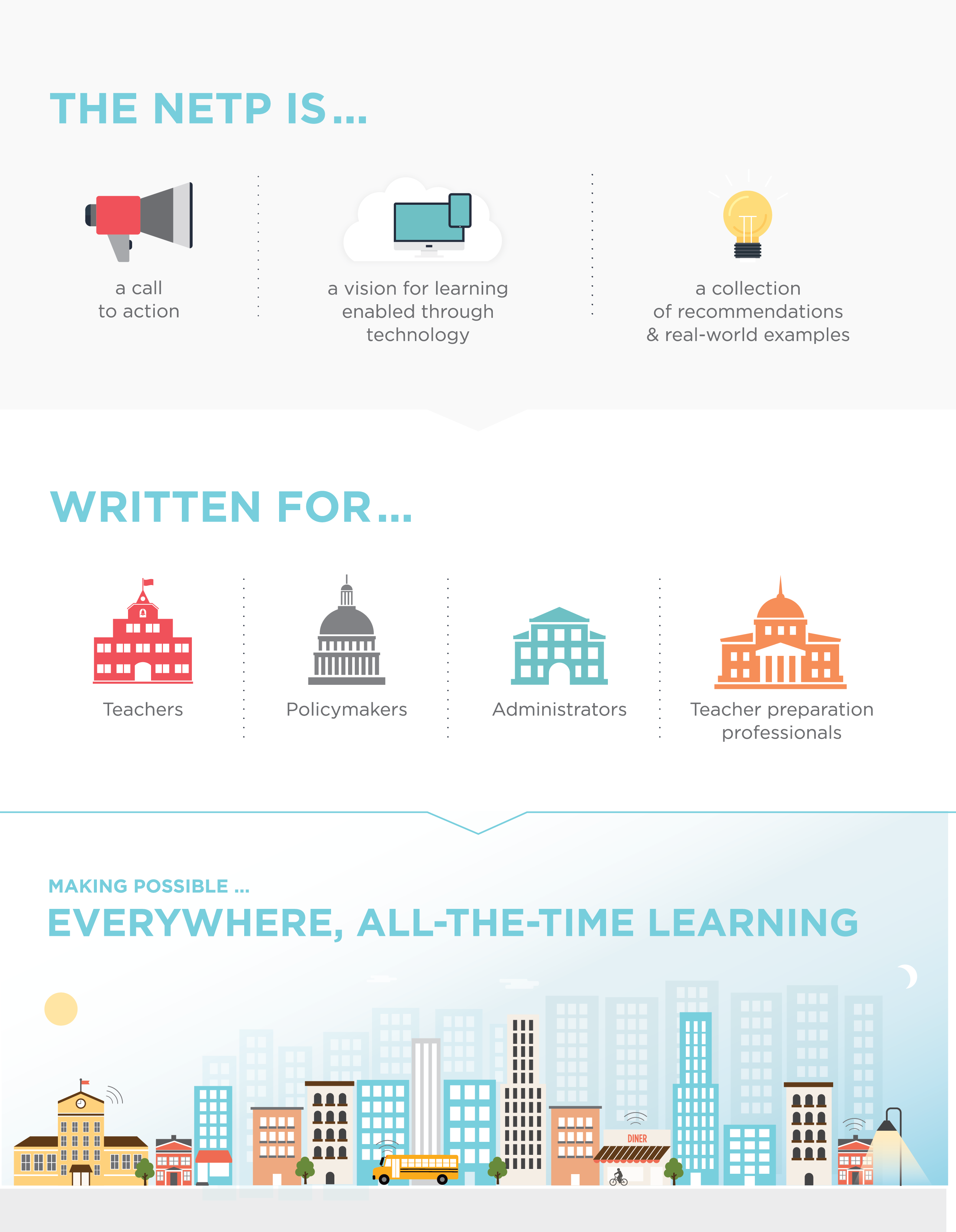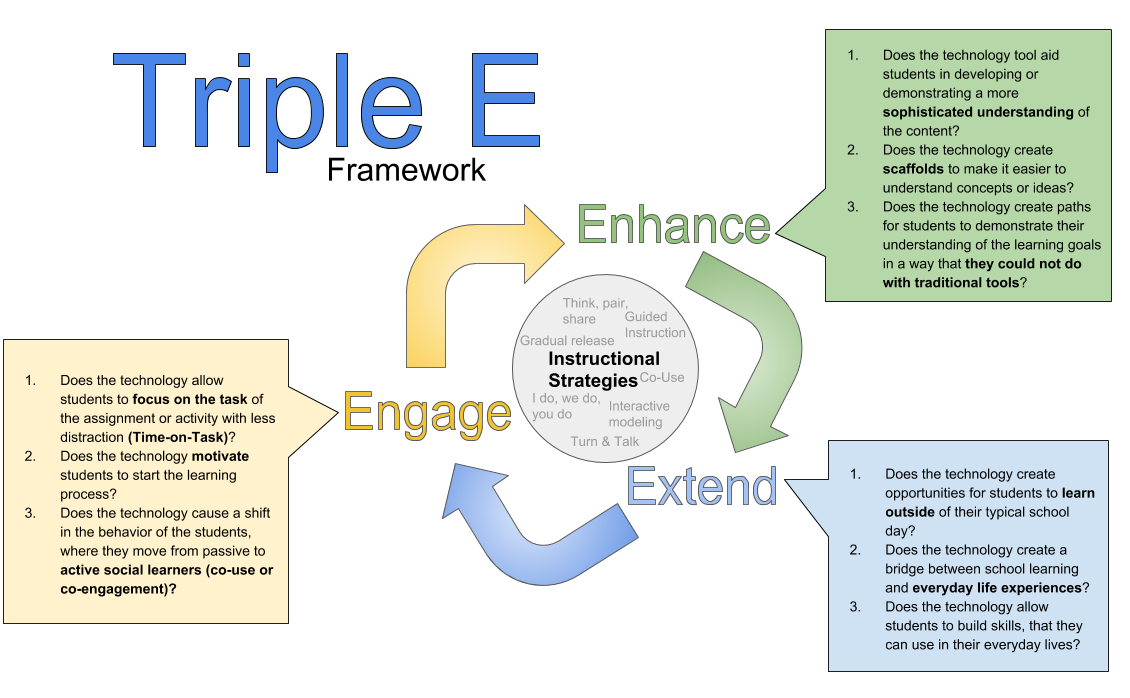Week 2 - Introduction to Learning Technologies - Blog Assignment - AIW, NETP, Triple E
 |
| (AIW Institute 2023) |
Authentic Intellectual Work (AIW) is characterized as work that constructs knowledge by instituting disciplined inquiries to produce products with value beyond the schoolhouse gate (Newman 2007 p. 3). The nature of AIW is to seek skills and knowledge that students must master to be successful in the workforce. Newman goes on to describe that AIW includes not only the rudimentary tenets of traditional instruction, math, science, language arts and social studies, but also “provides guidelines for an education that extends beyond basic skills to more complex academic work” (p 2). AIW focuses on preparing students for real-world intellectual demands for success in society.
When considering the AIW tenet, construction of knowledge, it is important to not only consider the subject matter but also the application. Construction of knowledge must go beyond the “what” and include learning the "how". Critical skills such as memorization, analysis, and communication are crucial to a student’s success in society.
Texas Education Agency Standard (TEKS) for English Language Arts and Reading, English IV. This standard states that students must engage in “both short-term and sustained recursive inquiry process for a variety of purposes...use an appropriate mode of delivery, whether written, oral, or multimodal, to present results” (Texas, 2017). Teaming with the 7th grade history teacher, we created a joint student project. In this project, students were asked to that 27 major events from WWII, research and present information in an appropriate medium of their choice. Students created hand written war journals, timelines, power points and even vintage news papers detailing these events which encompassed every major event starting with the German Occupation in 1936 through September 2, 1945 when Japan surrendered. Not only were we presented with wonderful products from our students, but also the students were able to work on soft skills they will need to be successful as adults. (Disclaimer: The example detailed above did not actually happen - it is partly inspired by a project my son completed last year and how I might have taken it to another level, encouraging technology and collaboration - among the students and teachers. I was not sure how to describe the proposed assignment without the implication that it had taken place.)
Newman also. states that AIW must “be guided by disciplined inquiry” (p. 4). Disciplined Inquiry includes consideration of a students prior knowledge base, learning to dive deep into subjects for understanding, and to communicate not only to conduct their work but also to present results. These “soft skills” are further discussed by Liz Kolb (2020) who discusses the importance of their development in a focused and intentional way.
 |
| (Gray 2020) |
The NETP was commissioned by the United States Department of Education - Office Education Technology in 2017 to encourage and guide the integration of technology in education. This plan was written for stakeholders in education including teachers, administrators and policy makers (p.4).
 |
| (NETP 2017) |
The NETP (2017) details the learning necessary to remain competitive in a global market and to “develop engaged citizens, our schools should weave 21st century competencies and expertise throughout the learning experience” (p. 10). This is not unlike the goal of the Authentic Intellectual Work Framework which is to prepare students who can not only perform tasks but to also be able to synthesize and communicate appropriately too. The NETP, buy enabling the integration of technology into education, also supports the development of “critical thinking, complex problem solving, collaborating, and adding multimedia communication into the teaching of traditional subjects” (p. 10). By integrating these skills into traditional education, the NETP supports Authentic Intellectual Work tenet of increasing the students ability to be successful beyond the schoolhouse gate.
How does the example you developed above support Engagement, Enhancement, or Extension?
 |
| (About, n.d.) |
 |
| (About, n.d.) |
References
About. Triple E Framework. (n.d.). Retrieved January 19, 2023, from https://www.tripleeframework.com/about.html
AIW Institute. (2023). Retrieved January 15, 2023, from https://aiwinstitute.org/
Gray, P. (2020, May 21). The importance of soft skills in the workplace! Great People Solutions.
Retrieved January 7, 2023, from
https://greatpeoplesolutions.com.au/the-importance-of-soft-skills-in- the- workplace/
Kolb, L. (2020). Learning First, technology second in practice: New Strategies, research and
tools for Student Success. International Society for Technology in Education.
Newmann, F. M., King, M. B., & Carmichael, D. L. (2007). Authentic instruction and assessment:
Common standards for rigor and relevance in teaching academic subjects. State of Iowa Department
of Education.
Office of Educational Technology. (2017). Reimagining the role of technology in education: 2017
National Education Technology Plan update. Retrieved from http://tech.ed.gov on Jan 15, 2023.
I agree with your description of authenticity, especially when you said it goes beyond the school walls and provides real world experiences. I absolutely love your lesson over WWII! I'm sure your students had creative artifacts, this lesson really immerses your students into the war time period. I agree that your lesson will reflect a positive outcome when utilizing the Triple E Framework. Thanks for sharing ~ Kimberly Press
ReplyDeleteKimberly, Thank you for reading my post and for your kind words as well. I wish I truly could take credit for the assignment, however it was a little bit made up and a little bit of an assignment that my son completed last year. I was a bit stumped with what to write about, and not sure how to answer the question - I guess this creativity shows my own mastery of soft skills :). However, I do plan to use this assignment at sometime in the future.
ReplyDeleteI loved the lesson over WWII! What a great way to allow students to choose an outlet to present their findings. I remember having to do an interview with a veteran years ago and it made me appreciate the freedoms we have even more. Students need to learn about important dates and facts of our world. This would help students retain the information they researched much better than just drill and memorization for a test.
ReplyDeleteHi Rhonda. Thanks for reading and for your comment! I agree, students need to learn these important events.
Delete